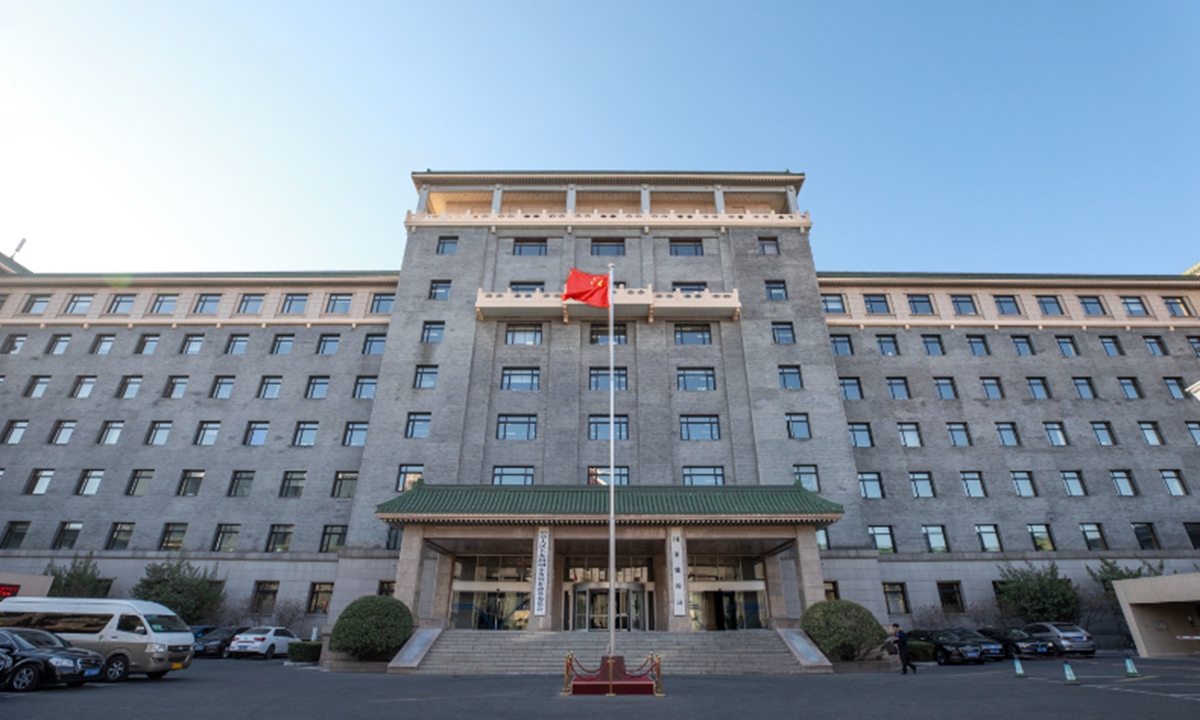NDRC urges improvement of govt integrity, creating better climate for private sector

The National Development and Reform Commission Photo: VCG
The National Development and Reform Commission (NDRC), China's top economic planner, issued a notice on Thursday, vowing to improve government integrity by building up a record and penalty mechanism in a bid to create a better business environment for the private economy.
The move, part of the nation's broad, concentrated efforts in the recent past to boost the private sector, is following through on pledges that the central government has made in bolstering the recovery momentum of the world's second-largest economy, experts told the Global Times.
The scope of government dishonesty includes breach of contracts signed by government departments with private enterprises in the fields of procurement, bidding, investment promotion, government-social capital cooperation, industrial support, and government investment, according to the notice.
It is necessary to improve the penalty and credit restoration mechanism for untrustworthiness in government behavior, it said.
The current government-level problems listed in the notice included changing orders from day to day, new officials ignoring old accounts, and harming fair market transactions.
In terms of penalties, the NDRC said that it will limit financial support in the central budget, place curbs on the application of local government special-purpose bonds, and limit recommendations for various financing projects in accordance with regulations for those entities that have reported a record of dishonesty.
"The NDRC's move will offer great strength in standardizing behavior at the government level," Cong Yi, a professor at the Tianjin University of Finance and Economics, told the Global Times on Thursday.
The vast number of small and micro-sized firms need a level playing field, a transparent business environment and stable market policies. Good ethical conduct, in particular at the local government level, could boost those companies' confidence and expectations, Cong said.
"It can be clearly seen that the authorities are taking actual steps and solving specific problems to rebuild confidence in the private economy, following through on recent pledges," Cong added.
In July, the top economic planner issued 31-point guidelines on boosting the growth of the private economy, highlighting that it will ensure that enterprises under different ownership structures operate in an arena of fair competition and are protected equally by the law.
The guidelines, which focus on improving the business environment, enhancing policy support and strengthening the legal guarantees for the development of the private economy, followed a series of meetings held by the Chinese leadership and multiple government departments including the NDRC, with private company representatives to discuss and learn about their business situations and operating difficulties.
More efforts will be made to eliminate market access barriers for private firms, NDRC official Wang Shancheng told a press conference on August 1. Wang said that the NDRC will start the revision of the country's fifth negative list for market access in a timely manner and make the list shorter to create a fairer environment.
China's private economy has emerged as a crucial driver of the country's development. It generates over 50 percent of tax revenue, over 60 percent of GDP, over 70 percent of technological innovation achievements and over 80 percent of urban employment.
Private firms account for 90 percent of the total number of enterprises, according to official data.
Global Times

